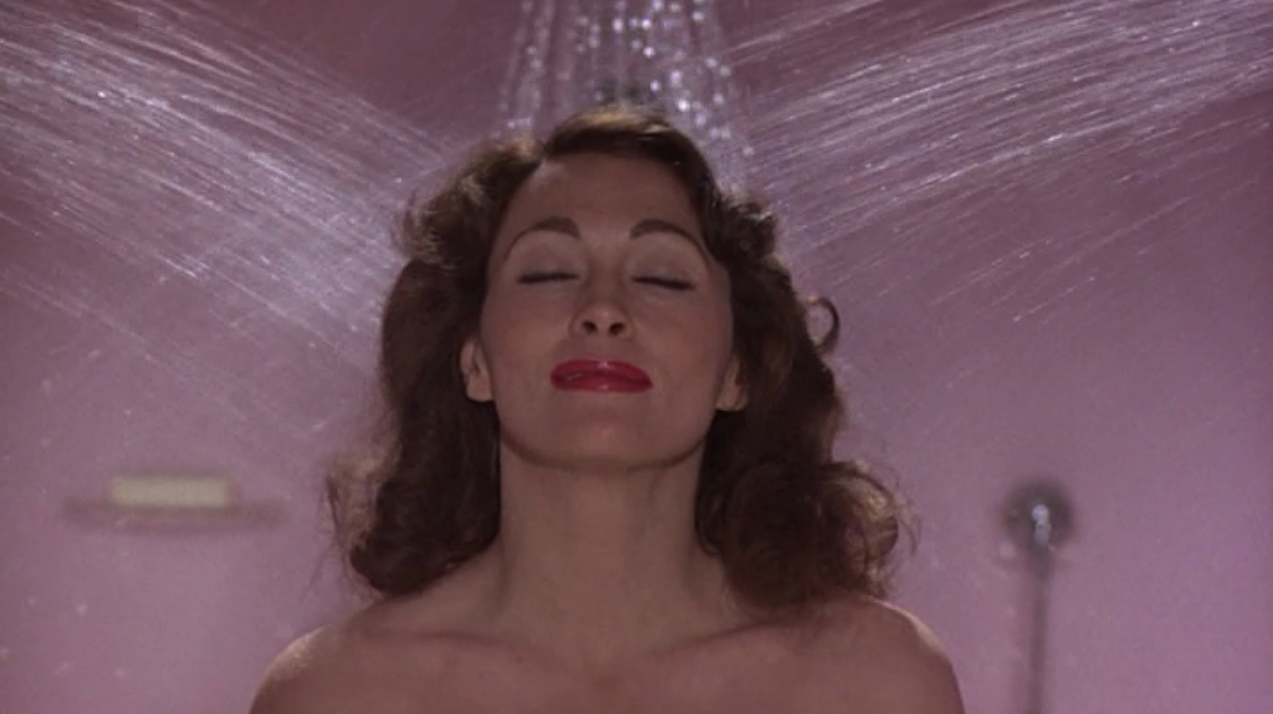A secretary, a Mexican as a Native American, a girl grieving for her brother's death, a fading beauty, and a brassy loud-mouth, 1954 was kinda all over the place in quality with some truly bizarre choices in nominations. How The High and the Mighty, a multi-character Cinemascope relic with John Wayne as the leading man, managed to score not one but two nominations in this category for this year is just beyond me. Especially when their two spots could have easily been taken by another pair of actresses giving memorable performance in a bonafide classic: Thelma Ritter and Grace Kelly in Rear Window. And it's hard to imagine that all four of these movies were even made in the same year, they're all so wildly varying in tone, with the clear standout being On the Waterfront. Sometimes when the winner, in this case Eva Marie Saint, is so clearly above the other nominees the inevitable march to Smackdown victory isn't necessarily the goal. It's the journey in discovering these films that I definitely wouldn't have seen without this series and their nominations. So let's jump right in and take a look at these performance from Nina Foch, Katy Jurado, Eva Marie Saint, Jan Sterling, and Claire Trevor.
* * *
Nina Foch Executive Suite
The Role: Although she appeared in Best Picture winner An American n Paris a few years earlier and would star in sword and sandals epics like The Ten Commandments and Spartacus, the Dutch born actress received her sole Oscar nomination for her role as a secretary in this star-studded ensemble.
My Take: Effortlessly gliding down the halls of Tredway Corporation with quite authority as she gathers board members, organizes last minute meetings, and pretty much keeps the office running smoothly and efficiently, Foch's Erica Martin is the picture-perfect ideal of a secretary. (Yes, secretary. This is the '50s after all. No Administrative Assistants here.) And even when the man she works for, CEO Avery Bullard, happens to die of a heart attack, Erica remains steadfast in her duties, loyal to the company and her deceased boss. Erica is exactly the type of employee you want working for you - because it's hard to picture her living any sort of life outside of the office (and I'm not sure the filmmakers or the actress has thought about it either). And while Foch's polished and professional performance sells this portrayal of those dutiful women that safely keeps the company secrets locked away in their desk drawer, she ultimately remains as blank as a page in her steno notebook. As knowable as the distant voice on the other line asking you to "please hold". ♥♥
Katy Jurado Broken Lance
The Role: In a remake of a New York City-set film only 5 years old, Jurado plays the matriarch of the Devereaux clan, an Irish settlement in the Old West that has King Lear levels of familial inheritance issues.
My Take: With her performance as the mistress of a cattle ranch in this flashback-set western, Jurado had the honor of becoming the first Mexican performer nominated for an acting Oscar. It's just a shame that the distinction came from her work here in which the Latina plays a turquoise-sporting Native American (yes, it's just as bad as it sounds) and not her far superior work two years earlier in the classic High Noon. Reduced to the subservient role of wife and mother, Jurado's role is here to service the men in her life. Referred to only as "Princess" or "Señora", she's not even given a proper name, let alone an actual character to play. Only a few years older than Robert Wagner as her son, it's difficult to realistically imagine her as his mother, even when they try to age her by putting an insane amount of gray in her hair like she's in a high school play production. And her scenes with Spencer Tracy just made me feel uncomfortable as she continually addressed him as "My Husband" and is forced to practically grovel at his feet. ♥
Eva Marie Saint On the Waterfront
The Role: Having already appeared on Broadway in The Trip to Bountiful opposite silent screen star Lillian Gish the year before, Saint would win the Oscar for her only career nomination in her big screen debut at the age of 30 as Edie Doyle, a young woman whose brother is killed by the local mob. Edie starts a relationship with the man who may have had a hand in her sibling's death.
My Take: You can't ask for a better film debut then working opposite Marlon Brando in one of his most iconic performances in a film that won Best Picture and a place among the all-time greats. And while Saint might have been new to the big screen, she had already honed her skills as an actress on stage, in television work, and training at the Actor's Studio. Her performance of Edie Doyle is not the work of some fresh-faced ingenue awkwardly charming their way through the part, but that of a craftsman just as studied and committed as her celebrated scene partner. And the two play off each other beautifully. Brando is often praised for the scene where Saint accidentally drops her glove and he improvises by picking it up and using it. But if you watch the scene again with the focus on Saint, you'll notice that without her reaction and ability to play along, it could've easily become a take that made it to the cutting room floor. Confused by her feelings for him, yet drawn to him at the same time, Saint uses this tension in trying to secure her glove back from him until she finally succeeds, giving herself over to her desires as well. And it's watching that internal struggle play out that makes Saint's performance so compelling. ♥♥♥♥
Jan Sterling The High and the Mighty
The Role: In her early 30s at the time, Sterling's only Oscar nomination came for her role as Sally McKee in this film in which she plays a former "Popularity Contest Winner" that worries that her beauty is starting to fade. She won the Golden Globe that year for this performance.
My Take: Outfitted in a fashionable travel suit, with platinum blonde hair and a heavily made-up face that reminded me of the first Barbie doll, Sterling's glamor girl is entirely defined by her looks from the very beginning. Even a popularity contest she won years ago was based on her appearance. (Although if movies have taught us anything, it's that pretty girls are popular. That's a fact.) And those good looks are all she has to cling to because apparently at the ripe ol' age of 30 it's all going downhill. That's right - she's already long in the tooth at 30. She's so consumed by how it's all starting to fade away that she's agreed to marry a man she's never even met. But she's deceived him by sending a picture when she was so much younger...than 30. She ends up having a breakdown on the flight in which she tearfully rubs off her make-up, including her drawn-on eyebrows and false eyelashes. It's a startling moment and Sterling doesn't shy away from exposing herself. But the moment would have more of an impact if it didn't feel so phony. Seconds later she's reapplying as if nothing happened, making you feel foolish for having felt any sort of sympathy for her shallowness. ♥♥
Claire Trevor The High and the Mighty
The Role: The only actress this year previously nominated, the former Best Supporting Actress winner (discussed in 1948) received her third and last nomination in this category as May Holst, a woman returning from vacation that unfortunately finds herself on an ill-fated trip.
My Take: Each of the other characters in this disaster film are introduced to the audience one at a time as they check-in for their soon-to-be failed flight, allowing the audience to take them in and immediately identify their "type". But Claire Trevor bulldozes her way into the film as the other passengers wait to board the plane as she loudly proclaims her dislike of Hawaii. And it's this type of brash and bossy deliver that will characterize the entire performance. Playing what can only be described as a sassy broad, she makes every moment count in her very limited screen time by playing to the back row as if she's on a vaudeville stage. In her most memorable moment, as the other passengers try to lighten the load of the plane by tossing off their heavy luggage, Trevor takes the mink coat off her back and kisses it good-bye as she flings it out the door. It makes zero sense as its weight couldn't possible make a difference. Which could very easily describe the performance itself, a senseless and weightless diversion that ultimately doesn't matter. ♥
* * *
The Oscar that year went to a very pregnant Eva Marie Saint and I can't help but whole heartily agreeing with the Academy on this one. It seems unfair to even compare Saint to these other ladies since she's given so much more to work with from the start, thanks to an amazing script and a role that's arguably lead, giving her much more screen time to form a fully-developed character. But it's also hard for me to imagine the Academy even seriously considering any of there other 4 ladies for the actual win. Despite Sterling's previous victory in this category at the Golden Globes. Seriously, what was going on that year?! Be sure to check out who was chosen over at The Film Experience (you can probably guess. It's Claire Trevor, of course!) and share your thoughts on this mixed bag of films and performances in the comments!
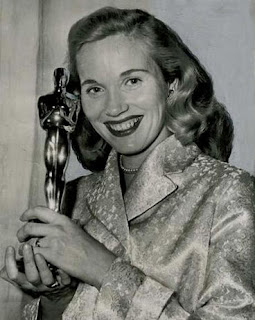




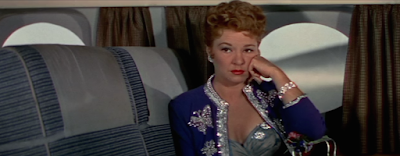

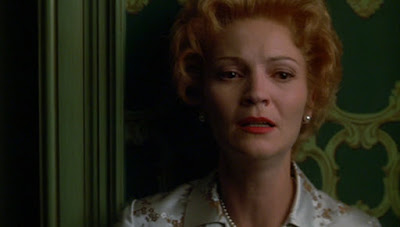



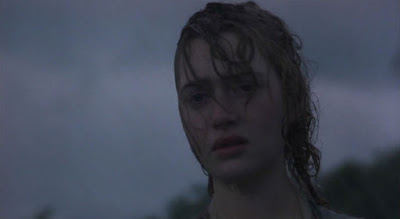


















 0%
0%

